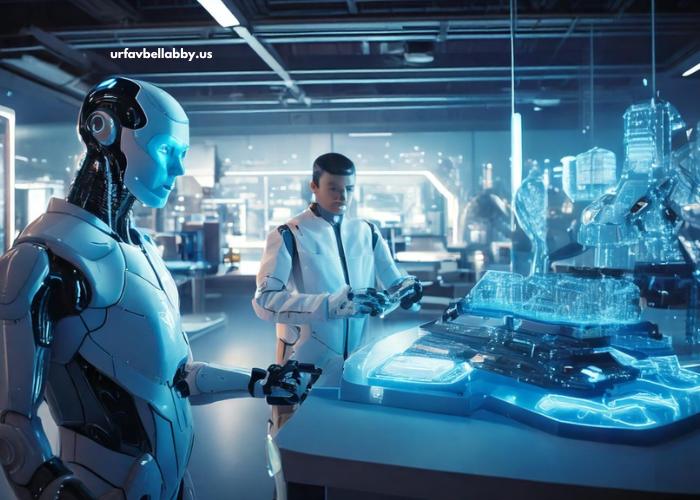Artificial Intelligence (AI) and automation have emerged as two of the most transformative forces in today’s digital world. Over the past few years, AI and automation technologies have started reshaping both business operations and personal lifestyles. From streamlining business processes to enhancing everyday life, AI and automation are driving significant changes that are helping organizations and individuals thrive in an increasingly complex world. This article explores how AI and automation are revolutionizing both business and lifestyle, creating new opportunities, efficiencies, and challenges.
Understanding AI & Automation
Before diving into the impact on business and lifestyle, it is essential to first understand what AI and automation are and how they work.
What is Artificial Intelligence?
Artificial Intelligence refers to the simulation of human intelligence in machines. These machines are programmed to perform tasks that typically require human cognition, such as learning, reasoning, problem-solving, and language understanding. AI is powered by data, algorithms, and neural networks that allow it to analyze patterns, predict outcomes, and make decisions based on the available information.
There are several types of AI, including narrow AI, which is designed to perform specific tasks like speech recognition or image classification, and general AI, which aims to replicate human cognitive abilities in a broader range of tasks. The rapid evolution of AI technologies, such as deep learning and natural language processing, has significantly advanced the capabilities of machines in recent years.
What is Automation?
Automation, on the other hand, refers to the use of technology to perform tasks without human intervention. Automation can take many forms, from simple mechanical processes to complex software solutions that handle repetitive and time-consuming tasks. Automation can be used in various industries, including manufacturing, healthcare, finance, and customer service, to improve efficiency, reduce errors, and enhance productivity.
Automation technologies often work hand-in-hand with AI, especially when it comes to automating decision-making processes and predictive analytics. As automation continues to advance, it has become a key enabler of digital transformation in businesses across the globe.
The Impact of AI & Automation on Business
AI and automation are reshaping the way businesses operate, from improving operational efficiency to enhancing customer experiences. Below are some of the key ways AI and automation are revolutionizing the business world.
1. Optimizing Business Operations
AI and automation are streamlining and optimizing business operations, making them more efficient and cost-effective. With the help of AI-powered tools, companies can automate routine tasks like data entry, scheduling, inventory management, and customer inquiries. This reduces the time spent on administrative duties and allows employees to focus on higher-value tasks that require creativity, critical thinking, and human judgment.
For example, AI-driven chatbots can handle customer support inquiries 24/7, reducing the need for human agents to respond to every request. Robotic Process Automation (RPA) can automate repetitive tasks in accounting, HR, and supply chain management, leading to reduced operational costs and fewer errors.
2. Enhancing Decision-Making
One of the most powerful aspects of AI in business is its ability to analyze large volumes of data and generate insights that drive informed decision-making. With AI-driven analytics, businesses can leverage real-time data to make more accurate predictions, identify trends, and optimize strategies.
AI tools like machine learning algorithms and predictive analytics enable businesses to forecast market trends, consumer preferences, and demand patterns, helping companies make more informed decisions about product development, pricing strategies, and marketing campaigns. This data-driven approach helps businesses stay competitive and agile in a rapidly changing market.
3. Personalizing Customer Experience
AI and automation are revolutionizing customer service by offering personalized experiences to consumers. By leveraging AI technologies such as machine learning, natural language processing, and sentiment analysis, businesses can deliver targeted and relevant content to customers, improving engagement and satisfaction.
For example, AI algorithms can analyze customer behavior and preferences, enabling businesses to create personalized marketing campaigns, product recommendations, and even tailored content. In e-commerce, AI-powered systems can predict the products a customer is most likely to purchase based on their browsing history, purchase behavior, and preferences.
4. Improving Supply Chain Management
AI and automation are also transforming supply chain management by enhancing forecasting, inventory management, and logistics. With AI tools, businesses can analyze historical data and predict demand, enabling them to better plan and optimize their supply chain processes.
Robotic Process Automation (RPA) is being used to streamline inventory management by automating stock tracking, ordering, and restocking processes. In addition, AI-driven robots and drones are being deployed in warehouses for tasks such as sorting, packaging, and delivery, reducing human error and improving operational efficiency.
5. Streamlining Hiring and Talent Acquisition
AI is revolutionizing the way businesses recruit and manage talent. AI-powered recruitment tools use algorithms to analyze resumes, screen candidates, and match them with job openings based on skills, experience, and qualifications. This automation speeds up the recruitment process, reduces bias, and ensures that businesses hire the best candidates for the job.
Furthermore, AI is being used to analyze employee performance, identify skill gaps, and recommend training programs to help employees enhance their skills and advance in their careers. This creates a more efficient and data-driven approach to talent management and professional development.
The Impact of AI & Automation on Lifestyle
While AI and automation have significantly transformed the business world, they are also having a profound impact on everyday life. From smart homes to personalized healthcare, AI and automation are making life easier, more convenient, and more connected.
1. Smart Homes and IoT
AI-powered smart home devices, such as voice assistants, thermostats, and security cameras, are becoming increasingly popular in households around the world. These devices use AI and machine learning to learn your preferences and automate tasks like adjusting the temperature, controlling lights, and locking doors.
For example, voice-controlled assistants like Amazon Alexa, Google Assistant, and Apple Siri can perform a wide range of tasks, such as playing music, setting reminders, and controlling smart home devices, all through simple voice commands. Smart thermostats like Nest learn your heating and cooling preferences, automatically adjusting the temperature for maximum comfort and energy efficiency.
2. Personalized Healthcare
AI and automation are revolutionizing healthcare by providing personalized treatment plans, improving diagnostics, and enhancing patient care. AI algorithms can analyze medical data, such as patient records and test results, to identify patterns and recommend treatments tailored to an individual’s specific needs.
Wearable devices, such as fitness trackers and smartwatches, use AI to monitor health metrics like heart rate, sleep patterns, and physical activity. These devices can alert users to potential health issues, track progress toward fitness goals, and even recommend lifestyle changes to improve overall well-being.
AI-powered telemedicine platforms are also making healthcare more accessible by enabling patients to consult with doctors remotely. This has been particularly beneficial in rural areas where access to healthcare facilities may be limited.
3. Autonomous Vehicles
Autonomous vehicles, powered by AI and automation, are set to transform transportation by reducing accidents, improving traffic flow, and providing more convenient travel options. Self-driving cars use AI algorithms, sensors, and machine learning to navigate roads, avoid obstacles, and make decisions in real time.
While fully autonomous vehicles are still in development, companies like Tesla, Waymo, and Uber are already testing self-driving cars and trucks. These innovations have the potential to reduce the need for human drivers, lower transportation costs, and make commuting more efficient.
4. Enhanced Entertainment Experiences
AI is also transforming the entertainment industry by providing personalized content recommendations and enhancing user experiences. Streaming platforms like Netflix, Spotify, and YouTube use AI algorithms to analyze viewing and listening habits and suggest content based on individual preferences.
Additionally, AI is being used to enhance gaming experiences by creating more realistic and immersive environments. AI-powered NPCs (non-playable characters) and procedurally generated game worlds are helping developers create dynamic, interactive experiences that keep players engaged.
5. AI-Powered Personal Assistants
Personal assistants powered by AI are helping individuals streamline their daily tasks and improve productivity. AI-powered apps like Google Assistant, Apple Siri, and Microsoft Cortana can perform tasks such as setting reminders, managing calendars, sending messages, and searching the web, all through voice commands.
These personal assistants are also becoming more integrated with other technologies, such as smart home devices, wearables, and cloud storage, providing users with a seamless experience across devices and platforms.
The Challenges and Future of AI & Automation
While the impact of AI and automation is overwhelmingly positive, it also comes with certain challenges. Issues such as job displacement, data privacy concerns, and the ethical implications of AI decision-making need to be addressed as these technologies continue to evolve.
Job Displacement
One of the primary concerns about AI and automation is the potential displacement of jobs. As more tasks are automated, some traditional jobs may become obsolete, leading to unemployment in certain sectors. However, AI is also expected to create new jobs and opportunities, particularly in fields related to AI development, data analysis, and cybersecurity.
Data Privacy
With the growing reliance on AI and automation in both business and personal life, concerns about data privacy have also emerged. Companies and individuals must ensure that data is collected, stored, and used responsibly, adhering to privacy laws and regulations to protect sensitive information.
Ethical Considerations
As AI systems become more autonomous, ethical questions surrounding their use arise. For instance, decisions made by AI algorithms in areas like healthcare, finance, and law enforcement must be transparent, fair, and unbiased to ensure they are not reinforcing existing societal inequalities.
Conclusion
AI and automation are undoubtedly revolutionizing the way businesses operate and how individuals live. From transforming business operations and enhancing customer experiences to reshaping everyday life with smart technologies, AI and automation are playing a critical role in driving innovation and efficiency. As we look to the future, it is clear that the integration of AI and automation into our daily lives will continue to expand, offering both new opportunities and challenges. Embracing these technologies responsibly will be key to harnessing their full potential for businesses and individuals alike.





